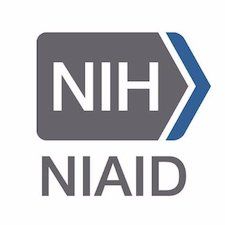NIAID Announces Clinical Trial on Rare Allergic Reactions Following COVID-19 Vaccination
Up to 100 participants who experienced an allergic reaction to the vaccine will be enrolled in the single-site trial, which will be led by Dr. Pamela A. Guerrerio

The National Institute of Allergy and Infectious Diseases (NIAID) announced that it will be conducting a clinical trial intended to help understand rare and potentially serious systemic allergic reactions that followed COVID-19 mRNA vaccination.
Up to 100 participants from 16-69 years old who experienced an allergic reaction to the vaccine will be enrolled in the single-site trial. Participants will receive a second dose of the COVID-19 vaccine as inpatients and will be under carefully controlled conditions at the NIH Clinical Center in Bethesda, Maryland.
“People who experienced an allergic reaction after receiving a COVID-19 mRNA vaccine may be hesitant to complete their vaccine regimen,” said Anthony S. Fauci, MD, NIAID Director. “This study will help us determine if individuals who experienced moderate systemic allergic reactions can safely receive a second dose of a COVID-19 mRNA vaccine.”
Currently, the trial is seeking participants who experienced a mild or moderate systemic allergic reaction following an initial dose of either the Pfizer-BioNTech or Moderna COVID-19 vaccine. Those who developed severe allergic reactions after their vaccination will not be eligible for inclusion.
The statement from NIAID noted that all participants will be admitted for a minimum of 4 days to the Intensive Care Unit at the NIH Clinical Center to ensure maximum safety, where medical staff and equipment and medications will be readily available.
On consecutive days, each participant will be randomly assigned either the FDA-approved Pfizer COVID-19 mRNA vaccine, Comirnaty, or a look-alike dose of inactive placebo.
Participants will experience breathing tests and frequent blood draws throughout the inpatient stay, which will be used by medical staff to ascertain any allergic or other responses to the vaccine.
Additionally, enrollees will also complete mental health/anxiety questionnaires prior to, at the time of, and in the months following vaccination, and will be asked to return to the NIH for an in-person follow-up one month and again five months after vaccination.
By the 5-month visit, all participants who tolerated the second dose of the vaccine with no or only mild symptoms will be offered a booster vaccination with the Comirnaty COVID-19 vaccine.
Pamela A. Guerrerio, MD, PhD, of NIAID’s Laboratory of Allergic Diseases will be leading the trial.
“Overall, severe allergic reactions to COVID-19 mRNA vaccines, including life-threatening anaphylaxis reactions such as low blood pressure and difficulty breathing, are rare, on the order of five cases per million vaccine doses administered,” said Guerrerio.“Our study aims to provide a better understanding of the mechanisms responsible for systemic allergic reactions such as hives, swelling, trouble breathing and light-headedness or passing out.”